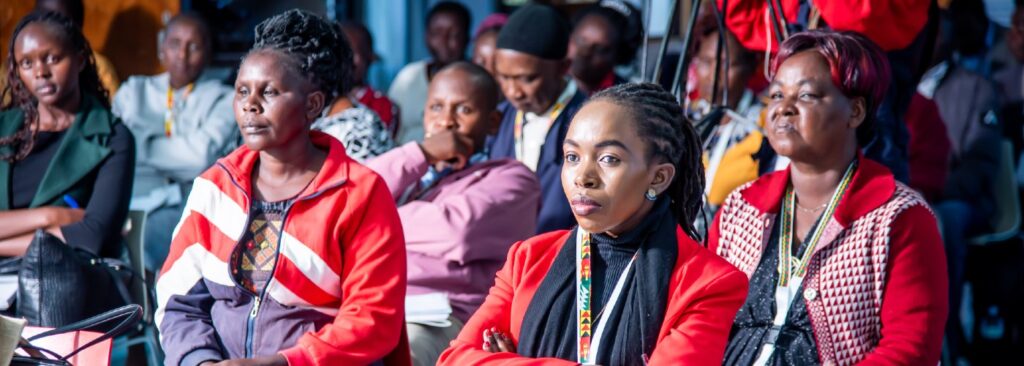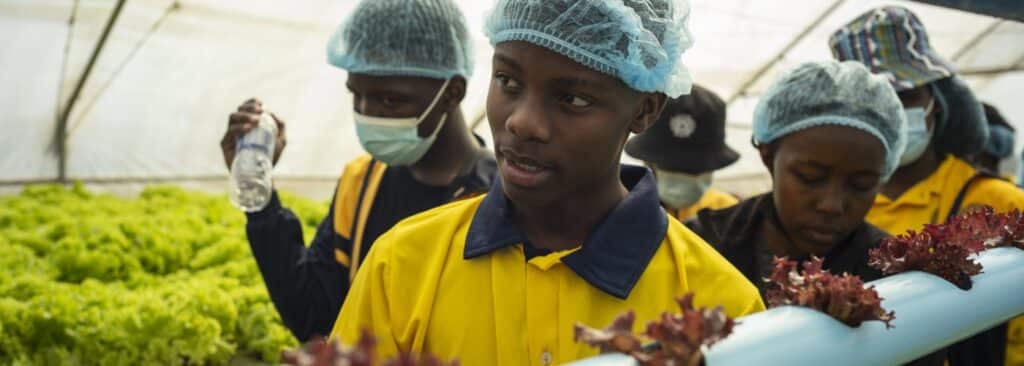Manabí, on Ecuador’s Pacific coast, has been designated World Region of Gastronomy 2026 by the International Institute of Gastronomy, Culture, Arts and Tourism (IGCAT). This prestigious title is a first in the Americas. But the recognition is more than a title – it honors the knowledge and dedication of women cooks, farmers, and fishers who for millennia have preserved flavors, recipes, and farming practices rooted in ancestral times.
By Ana Carolina Benítez, Linking & Learning Officer of Urban Futures Latin America
Behind every patacón*, every bowl of tonga**, every spoon of viche***, lies the labor of generations of women who have brought the memory of the land and sea to the table. Their work, together with that of small-scale producers who cultivate and harvest the ingredients that define Manabi’s cuisine, is the true foundation of this global achievement.
Yet, the story of Manabí is also marked by crises and disconnection. In less than three decades, the province has endured two devastating earthquakes. And many young people feel increasingly distant from their roots as they are forced to seek opportunities elsewhere. Precarious jobs, migration, and exclusion from decision-making spaces have left a gap between the rich cultural identity of the province and the futures its youth imagine for themselves. The challenges Manabí faces loom heavily over its potential promise:
- fragile social fabric and weakened trust in institutions
- exclusion of women and youth from the food system
- loss of culinary identity under the pressure of processed foods
- ecological vulnerability and deforestation
- limited governance to connect food, culture, and development
This complex backdrop turns Manabí’s recognition as a World Region of Gastronomy into more than a celebration – it becomes a call to action.
The youth voice: a manifesto for the future
During the recognition ceremony, young Manabitas presented their Manifesto for a Prosperous, United, and Proud Manabí. Their call to action expressed both urgency and possibility:
- to reconnect with their territory
- to value their culinary heritage as world-class art
- to protect forests, seas, and ecosystems
- to build safe communities and sustainable tourism
- to find opportunities for dignified employment within their territories
- to see themselves as protagonists in shaping Manabí’s future
“It is alarming that many young people do not know the wealth of our own territory. This is a call to educate and empower our youth, showing them the beauty of our gastronomy, the strength of our identity, and the value of every place.”
a co-author of the Manifesto
From heritage to opportunity
MANPANOR, the North Pacific Commonwealth in Manabí, is one of the ten city regions in Hivos‘ global Urban Futures program. The program supports local partners, and especially young people, in creating more inclusive, climate-resilient cities and urban food systems in Indonesia, Zambia, Zimbabwe, Colombia, and Ecuador.
For Hivos and the Urban Futures program, this recognition is also a chance to link Manabí’s heritage with a vision of transformation led by young people. As Tanja Lubbers, Hivos Regional Director for Latin America, expressed during the ceremony:
“In this short time, I’ve been captivated by the warmth of Manabí’s people, the generosity of its land, and the authenticity of its cuisine. But I’ve also sensed the challenges: the tension between biodiversity and climate threats, between ancestral knowledge and modern demands, between young people’s desire to stay and the barriers that push them away. This recognition is not only a source of pride, it is an invitation to collectively build a future where food and youth are essential ingredients of transformation.”
Urban Futures aims to put young leaders at the center of food system change. In Manabí, this means creating safe spaces for youth to express themselves, strengthening their leadership capacities, connecting them across territories, and supporting their ideas to become real engines of change.
Building the future together
Manabí becoming a World Region of Gastronomy shows that the province’s culinary and cultural heritage is a genuine development opportunity – particularly for young people and the women and producers who have developed its cuisine. When supported through education, innovation, collaboration, and community advocacy, this recognition can lead to dignified livelihoods, resilient communities, and a renewed sense of identity.
At Hivos, we believe that food is not only what we eat, but also how we connect to each other, to our territories, and to the planet. The path ahead is not without challenges, but the determination and talent of its cooks, producers, and youth show that all Manabí needs is for them to help lead the transformation they call for.
Manabí’s cuisine has always told a story of resilience. Now, together with its youth, it can also tell a story of the future.
* Twice-fried green plantain slices, crispy on the outside and soft inside, widely eaten across Manabí.
** A traditional Manabí dish of rice, meat, and peanuts wrapped in plantain leaves, once a portable meal for laborers, now a symbol of hospitality and cultural identity.
***A traditional soup of fish, peanuts, plantain, and herbs with pre-Hispanic origins, preserved as a symbol of community heritage and collective memory in Manabí.






